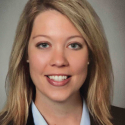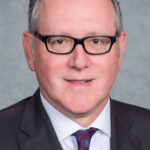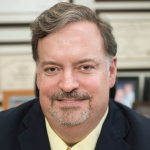It was during those first few weeks of fellowship that I received an email from the ACR looking for fellows who were interested in going to Washington, D.C., and becoming an advocate for their patients. I really didn’t know anything about advocacy, but I thought, “This is perfect. I am seeing this need, and this is a way I can help.” So that’s how I initially became interested and started out as an advocate. The ACR staff have been super helpful from the start, and I’ve become more involved and more interested in advocacy since.
TR: Have you seen advocacy make a difference?
Dr. Schnell: Oh yes. One example is an early success I saw from advocacy work when I was a fellow. At that time, Medicare had coverage caps for physical therapy (PT), so a patient who had received [the annual PT allotment] for something like a knee replacement and then two months later had a stroke would not qualify for additional PT. Helping to get that cap removed was beneficial not only to rheumatology patients, but to all patients. That continues to inspire me today to continue advocating for change.
TR: How has the pandemic affected advocacy work?
Dr. Schnell: The methods have been a little different, such as meeting with government representatives and their staff members on Zoom instead of in person, but I think we can see that our advocacy efforts have gone very well this past year. Many of the issues that we advocated for early in the pandemic centered on access to care, which included insurance coverage for telehealth visits as well as telephone visits for patients without internet connections. Those are things that patients and doctors have come to appreciate, so hopefully they will continue after the pandemic.
TR: How does being part of a broader advocacy community affect your experiences during the pandemic?
Dr. Schnell: It has been a great way for me to stay up-to-date on issues and has also helped with some of the isolation. As clinicians, we have all continued to see patients, but we also have been spending a lot of time alone in our offices. So both personally and professionally, it has been helpful and gratifying to be part of a bigger rheumatology community that is advocating as a whole to move the profession forward.
TR: Going forward, it sounds like advocacy will remain a key part of your service as a healthcare professional.



